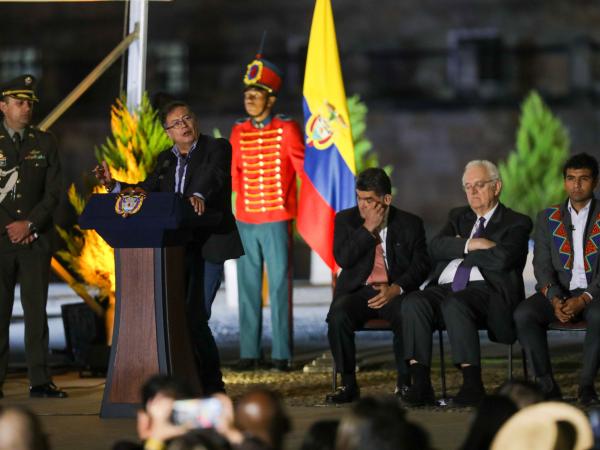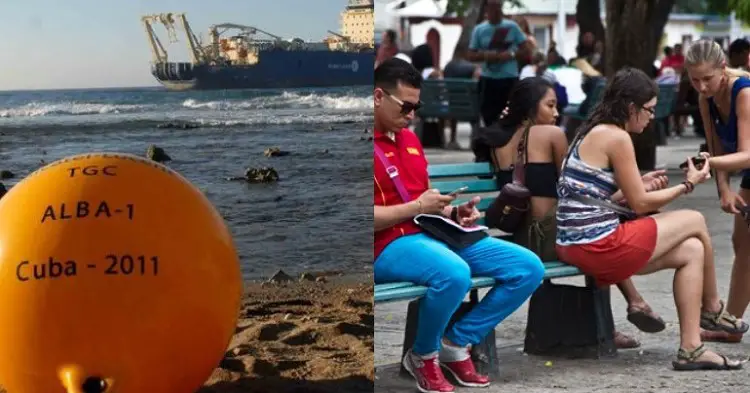The reactions to National Development Plan that the Government of Gustavo Petro settled on Monday and that will be discussed until May 7, have not been long in coming.
(Popular economy, the protagonist of the National Development Plan).
The opposition and even the mayoress of Bogotá, Claudia López, have made reference to the road map proposed by the Government for the next four years. “Unusual! It is the first time that the Government does not include the Bogotá metro as a strategic project,” said the local president.
Among the most controversial points of the 166-page project that is accompanied by 321-page bases is the creation of a new truth commission, changes in the structure of the National Police or the recovery of the San Juan de Dios Hospital in Bogotá.
At this point, the creation of a universal income registry stands out. The ideal of the Plan is that all people, regardless of their income, begin to declare income and that this information can later be used to better target the subsidies. For the creation of this Universal Income Registry, which would administer the National Planning Department, An article in the document indicates that the Government could access confidential information held by public and private entities of individuals.
(Colombia would have a universal social protection system).
There is also the creation of in-kind transfers to deliver to the most needy population. Carlos Sepúlveda, professor of Economics at the Universidad del Rosario, stresses that it should be rigorously structured as it has risks that must be mitigated.
Another controversial issue is the prohibition of new open pit coal mining projects classified as large-scale.
Regarding political affairs, opposition sectors highlight 14 articles, such as the extraordinary powers granted to the President and which, in the opinion of the Democratic Center, may allow him to restructure the executive branch.
“The president will be able to regulate the policy of alternative uses of coca and psychoactive substances; reformulate or put an end to Familias en Acción or Jóvenes en Acción, and restructure the San Juan de Dios Hospital at will”, assured Senator Paloma Valencia.
Among other issues that may be controversial is that the Territory Renewal Agency will be attached to the Ministry of Equality. And it also causes concern that the cadastral appraisal of all the properties in the country will be adjusted during 2023 and the fact that the national government will be able to present investment projects that can be financed with the resources of the allocation for peace.
In terms of justice, the articles propose creating a “non-judicial mechanism to contribute to the truth and historical memory”, with functions that would be similar to those of the Truth Commission created in the peace agreement with the extinct FARC.
(Development Plan seeks that communities can self-generate energy).
It also provides for a new architecture for the Police for its transfer from the Ministry of Defense so that it is in the hands of a civil body and gives the President powers for six months to regulate the special conditions of imprisonment for members of indigenous communities.
Extraordinary powers are also available for the President to regulate “alternative uses of the coca plant and cannabis”, as well as the definition of the medicinal, therapeutic and scientific purposes of psychoactive substances. The plan seeks to create an instance of articulation between the Government and the Special Jurisdiction for Peace to facilitate compliance with the sanctions that it provides and creates the National System for the Search for Persons Reported as Disappeared.
One of the most controversial points of the PND is article 298, through which Petro is granted extraordinary powers for six months to implement public policies, including one aimed at the recovery of the San Juan de Dios Hospital.
Although the plan is not known in detail, the President’s idea is to prevent the central tower from being demolished. The government seeks “to acquire the infrastructure of San Juan de Dios free of charge or for consideration” and “to create the public entity (…) that uses it to provide health services.”
Another old desire that is part of the plan is the creation of the “Zero Waste” program, which he tried to apply in Bogotá during his mandate and whose objective, according to Petro, is to remunerate recyclers, reduce cleaning fees and reduce the open burial of solid waste.
Another criticism is that in the plan there is no mention of the Metro lines, a situation that generated criticism from Mayor Claudia López. The Government responded by saying that they were not in the document because “They are financed with future vigencies.”
Writing THE TIME








